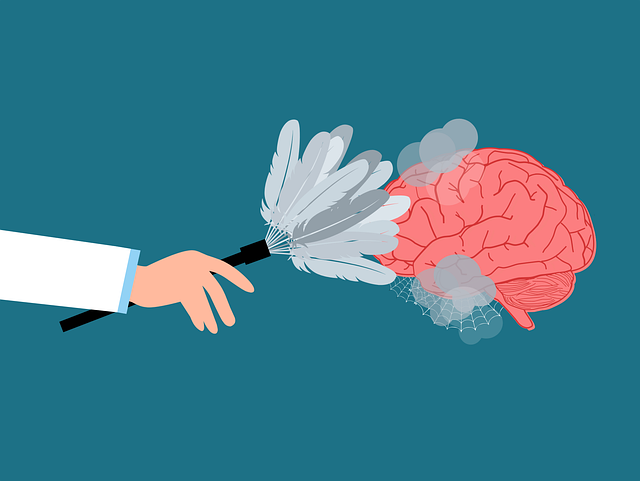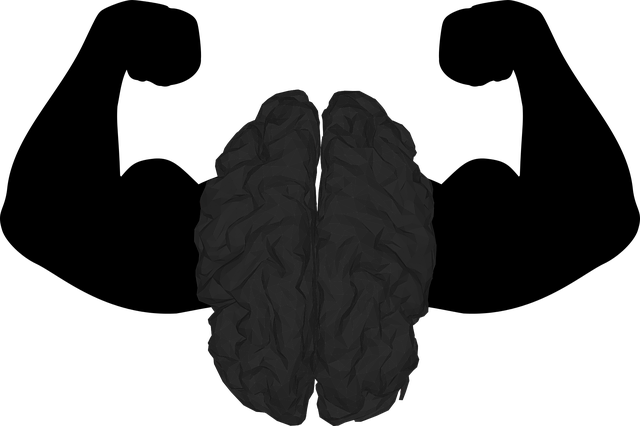Lakewood Dissociative Disorder Therapy employs Resilience-focused Measurement (RFM) to empower individuals with dissociative disorders, evaluating stress handling, adversity recovery, and self-preservation against trauma. This approach guides tailored interventions for optimal therapy outcomes, promoting long-term mental wellness through exercises in communication, journaling, crisis intervention, and structured resilience-building activities. The Lakewood Approach to Resilience Building Exercises, inspired by RFM, helps individuals regain emotional control and build mental resilience, integrating these practices into clinical settings for comprehensive trauma support. Risk Management Planning ensures therapist safety while teaching clients effective crisis response strategies and conflict resolution skills. Adopted globally, RFM exercises have proven effective in managing dissociative disorders and enhancing overall well-being.
“Discover the transformative power of RFM (Resilience, Flexibility, and Mastery) in addressing dissociative disorders through a unique therapeutic lens—the Lakewood approach. This article explores how RFM exercises, tailored for clinical practice, enhance traditional Lakewood Dissociative Disorder Therapy. We delve into the theory behind these techniques, offering practical strategies for implementation. Case studies highlight successful RFM integration, showcasing its impact on patient resilience and overall well-being. Embrace a holistic therapy approach and unlock new potential in treating dissociative disorders.”
- Understanding RFM and Its Relevance in Dissociative Disorder Therapy
- The Lakewood Approach to Resilience Building Exercises
- Implementing RFM: Strategies for Clinical Practice
- Case Studies: Success Stories of RFM Implementation
Understanding RFM and Its Relevance in Dissociative Disorder Therapy

At Lakewood Dissociative Disorder Therapy, we recognize that Resilience-focused Measurement (RFM) is a powerful tool to help individuals navigate and overcome the challenges associated with dissociative disorders. RFM assesses an individual’s ability to handle stress, recover from adversity, and maintain a sense of self despite traumatic experiences. Understanding one’s resilience level is crucial in Dissociative Disorder Therapy (DDT) as it guides tailored interventions.
By incorporating communication strategies and mental wellness journaling exercise guidance, therapists can assist clients in developing coping mechanisms and building psychological defenses. Additionally, crisis intervention guidance becomes more effective when aligned with an individual’s RFM score, ensuring that support is delivered to foster resilience rather than merely addressing symptoms. This personalized approach promotes long-term mental wellness and empowers individuals to lead fulfilling lives despite their past traumas.
The Lakewood Approach to Resilience Building Exercises

The Lakewood Approach to Resilience Building Exercises is a therapeutic methodology that leverages techniques from Lakewood Dissociative Disorder Therapy to enhance mental health awareness and trauma support services. This approach recognizes the profound impact of trauma on an individual’s emotional well-being and mental resilience. By focusing on dissociation – a common coping mechanism in the face of traumatic experiences – the Lakewood method aims to help individuals regain control over their emotions, improve mood management, and build a stronger foundation for overall mental health.
Through structured exercises designed to foster a deeper understanding of one’s emotional responses, this approach encourages clients to develop effective coping strategies tailored to their unique needs. By integrating these exercises into therapeutic practice, mental health professionals can offer comprehensive trauma support services that not only address the symptoms but also empower individuals with lifelong skills to navigate challenging situations, thereby fostering resilience and enhancing overall quality of life.
Implementing RFM: Strategies for Clinical Practice

Implementing RFM (Resilience, Flexibility, and Mastery) in clinical practice offers a powerful framework for supporting individuals with dissociative disorders like those seeking Lakewood Dissociative Disorder Therapy. This approach emphasizes fostering resilience by helping clients develop adaptive coping strategies to navigate traumatic experiences. Therapists can guide patients through various exercises designed to enhance flexibility in thinking and behavior, allowing them to adapt more effectively to challenging situations.
For instance, Mental Wellness Journaling Exercise Guidance can be a valuable tool. Encouraging clients to reflect on their emotions, thoughts, and behaviors in a structured journal promotes self-awareness. This practice enables individuals to identify triggers and develop personalized strategies for managing symptoms. Additionally, Risk Management Planning for Mental Health Professionals is crucial when working with dissociative clients. Therapists should assist patients in creating safety plans that outline steps to take during crises, thereby empowering them to regain control. Conflict Resolution Techniques can also be incorporated into RFM, teaching individuals effective communication skills to navigate interpersonal challenges and promote positive relationships.
Case Studies: Success Stories of RFM Implementation

Implementing RFM (Resilience, Flexibility, and Mastery) exercises has proven to be a game-changer in various therapeutic settings, with numerous success stories to share. One notable example is the case of Lakewood Dissociative Disorder Therapy, where practitioners adopted RFM techniques to enhance their clients’ mental health awareness and emotional healing processes. By focusing on resilience building, therapists aided individuals in managing dissociative symptoms and improving overall well-being.
This approach has not only been successful in treating dissociative disorders but has also found application in burnout prevention strategies. The RFM framework empowers individuals to develop coping mechanisms that strengthen their mental fortitude, enabling them to navigate challenging situations with increased flexibility. Mental health professionals worldwide are recognizing the potential of these exercises, leading to more holistic and effective treatment modalities that cater to diverse emotional healing processes.
Resilience is a powerful tool in treating dissociative disorders, and the Lakewood Approach offers a unique and effective framework. By integrating RFM (Resource, Focus, and Mastery) exercises into clinical practice, therapists can empower individuals to navigate their trauma and build lasting coping mechanisms. The case studies presented demonstrate the success of this approach, highlighting improved symptoms, enhanced quality of life, and increased resilience among clients. As a game-changer in dissociative disorder therapy, the Lakewood Dissociative Disorder Therapy model provides a comprehensive strategy that fosters recovery and promotes a more fulfilling life for those affected by these complex disorders.














